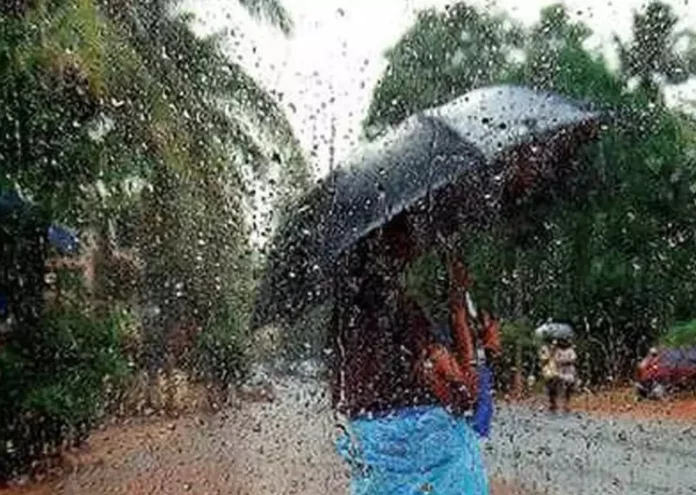By: Michaella Faith Wright
The bustling market at SBEC by Salaji in The Gambia is a vibrant hub of activity, where hardworking women gather daily to sell their goods. As the rainy season sets in, these market women face numerous challenges that make their work even more demanding. To better understand their plight, I visited the market and spoke with several women about their experiences during this difficult time.
Mariama, a Vegetable Seller:
“The rain makes it very difficult for us. Our stalls get flooded, and it’s hard to keep the produce fresh. Sometimes, we lose a lot of our goods due to water damage. We have to work extra hard to clean up and make our area presentable for customers. When it rains heavily, the market becomes almost inaccessible, and foot traffic reduces significantly. This affects our daily income because fewer customers mean fewer sales.”
Fatou, a Fish Vendor:
“During the rainy season, the fish doesn’t stay fresh for long. We need ice to preserve it, but power cuts make it impossible to keep the fish from spoiling. The constant rain also keeps customers away, which means we make fewer sales. It’s heartbreaking to see good fish go to waste because we can’t keep it fresh. We’ve tried different methods to preserve it, but nothing works as well as consistent refrigeration, which we lack.”
Awa, a Fruit Seller:
“The rain affects everything, from transportation to customer turnout. It’s hard to bring in fresh fruits from the farms when the roads are muddy and impassable. We end up selling what we can, but it’s not enough to cover our expenses. The fruits get bruised and damaged during transportation on bad roads, leading to further losses. Additionally, the rainwater often seeps into our stalls, making it difficult to keep our fruits dry and presentable.”
Binta, a Spice Trader:
“Spices need to be kept dry, but with the rain, it’s a big challenge. We have to cover everything with plastic, but even that isn’t foolproof. Sometimes, we have to throw away a lot of our stock because it gets wet and spoils. The damp conditions also encourage mold growth, which is disastrous for spices. Every time it rains, we worry about the quality of our stock and whether it will survive the season.”
Kaddy, a Tailor:
“The rain not only affects those selling perishable goods but also us tailors. The dampness makes it hard to keep the fabrics in good condition. Customers often delay picking up their orders because of the rain, which affects our cash flow. Moreover, the market gets so muddy that it’s difficult to move around without getting our materials dirty. We try to keep everything covered, but the humidity still affects the fabrics, sometimes causing mildew.”
Despite these challenges, the market women of SBEC by Salaji remain resilient. They continue to find ways to adapt and persevere, showing remarkable strength and determination in the face of adversity.
Strategies for Coping:
Many of the women have developed innovative ways to cope with the challenges. Mariama and some other vegetable sellers have started using raised platforms to keep their produce off the ground. Fatou and her fellow fish vendors have pooled resources to purchase larger ice blocks that last longer. Awa collaborates with other fruit sellers to share transport costs and use better-protected vehicles. Binta and other spice traders have invested in more durable plastic covers and storage bins to protect their spices. Kaddy and other tailors have begun using dehumidifiers to keep their workspaces dry.
Community Support:
The community around SBEC by Salaji also plays a crucial role. Local NGOs and support groups occasionally provide tarps and other materials to help the women protect their goods. There are also efforts to improve the market’s drainage system, though progress is slow. Despite the support, more needs to be done to provide sustainable solutions.
The Call for Better Infrastructure:
One common sentiment among the women is the need for better market infrastructure. Improved drainage systems, better roofing, and more reliable electricity would go a long way in easing their burdens. They also hope for more government support, not just in terms of infrastructure but also in providing financial assistance or grants to help them weather the rainy season.
Resilience and Determination:
Despite the many hurdles, the market women of SBEC by Salaji remain undeterred. Their spirit and dedication to their work are truly inspiring. As Mariama puts it, “We don’t have a choice but to keep going. This is our livelihood, and we have to make it work, rain or shine.” Their resilience is a testament to their strength and unwavering commitment to providing for their families and contributing to the local economy.
Their stories are a testament to the indomitable spirit of market women in The Gambia, who, despite the odds, continue to support their families and contribute to the local economy. As we listen to their voices, it becomes clear that their challenges are not just personal struggles but reflect broader systemic issues that need attention and action.




